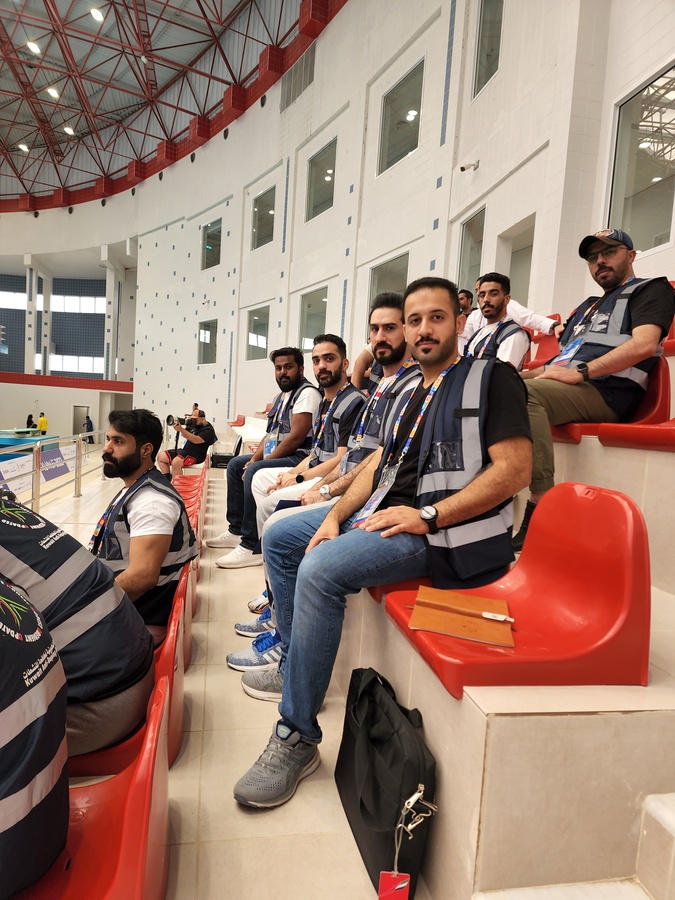Kuwait City, Kuwait, May 18, 2022: Like an eagle they swoop down on the water as soon as a race is over. Every medal winner is then taken for a drug test by the men in the blue vests – the Kuwait Anti-Doping Agency.
“We are all volunteers. We all have day jobs, but this is a passion,”
says Mohammed Thiab, the leader of the anti-doping pack at the Sheikh Nasser Al Mohammed Aquatics Centre.
Thiab, a PE teacher, heard 11 years ago that the Kuwait Anti-Doping Agency needed manpower and applied to join a training course. He marshals his 14-strong squad at swimming with precision, earmarking who should swoop down on the gold medallist, the silver medallist and bronze medallist. There are three anti-doping officials allocated for each race.
“We collect blood as well as urine samples, two of each, the A and B samples. These samples are sealed and then sent to Qatar for testing.
It will take between 10 and 14 days for the results to come back,” explained Thiab.
Ahmed Basel Mohammed has been designated to watch out for the bronze medallist in the men's 800 metres freestyle final. He is a civil engineer by profession. This is more fun.
“I volunteered because I’m a sports fan and this gives me the opportunity to be able to watch all the action,” Mohammed admitted.
According to the Director-General of Kuwait’s Anti-Doping Agency, Hana Al-Buti, intensive efforts have been put in place for the 3rd Gulf Games. The specialised teams will gather samples from all medal winning athletes under strict WADA regulations, Al-Buti disclosed in a recent press release.
There will be 21 inspection teams, five of which are for women, and they will be at work at all the 16 sport competitions.
With all these stringent measures in place, will these Games be clean?
“I hope so,” smiles Thiab.


